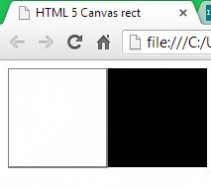一 : subtitle 和 caption 的区别
Understanding captions & subtitles
The terms captioning and subtitling may be confusing to some readers. Both terms relate to the addition of onscreen text that renders dialogue. But captioning and subtitling are significantly :
1. Captions are intended for deaf and hard-of-hearing audiences. The assumed audience for subtitling is
hearing people who do not understand the language of dialogue.
2. Captions move to denote who is speaking; subtitles are almost always set at bottom centre.
3. Captions can explicitly state the speaker’s name:
1. [MARTIN]
2. >> Announcer:
3. ORIGINAL CAST OF "ANNIE":
4. Captions notate sound effects and other dramatically significant audio. Subtitles assume you can hear
the phone ringing, the footsteps outside the door, or a thunderclap.
5. Subtitles are usually open (permanent, always visible). Captions are usually closed (selectable; you can
turn them on or off). Closed subtitles, however, are now more numerous due to the popularity of DVDs.
6. Captions are usually in the same language as the audio. Subtitles are usually a translation.
7. Subtitles also translate onscreen type in another language, e.g., a sign tacked to a door, a computer
monitor display, a newspaper headline, or opening credits.
8. Subtitles never mention the source language. A film with dialogue in multiple languages will feature
continuous subtitles that never indicate that the source language has changed. (Or only dialogue in one language will be subtitled.)
9. Captions tend to actually transcribe and render utterances in a foreign language, or transliterate that
dialogue if a different writing system is used, or state the name of the language being spoken.
10. Captioning aims to render all utterances. Subtitles are selective and do not bother to duplicate some
verbal forms, e.g., proper names uttered in isolation (“Jacques!”), words repeated (“Help! Help! Help!”), song lyrics, phrases or utterances in the target language, or phrases the worldly hearing audience is
expected to know (“Danke sch?n”).
11. Captions render tone and manner of voice where necessary:
1. ( whispering )
2. [BRITISH ACCENT]
3. [ Vincent, Narrating ]
4. (Sings like Elvis)
12. A subtitled program can be captioned (subtitles first, captions later). Captioned programs aren’t subtitled
after captioning.
In U.K. English, subtitling is used to mean both captioning and subtitling. Canadian, American, New Zealand, and Australian English do not make that mistake, and neither will we here. Closed Caption,简称CC,意思就是隐藏的带有解释意味的字幕(CAPTION)。[www.61k.com)CAPTION与我们常见的一般字幕(SUBTITLE)的用法是有区别的,它是在无音状态下通过进行一些解释性的语言来描述当前画面中所发生的事情的字幕,例如画面中出现了背景的声音的时候,CAPTION都会通过字幕进行提示。
一般这类型的字幕都是为听力有障碍或者无音条件下观看节目的观众所准备的,在美国执行的一些非强制性的标准中要求一般的电视及录像节目都要为这样的观众提供CAPTION的字幕,如果不做直接的可显示字幕的话,也要求将其做成可隐藏的字幕,也就是CLOSED CAPTION,即CC字幕
单词 caption 和 subtitle 意思很接近, captions通常是指特别设计的屏幕文字,而 subtitles 通常是指对话翻译. 通常Captions出现在说话人物的下方,包含声音和音乐描述.除非使用者激活Closed captions, 否则它们不会显示出来. Open captions总是可见的,比如外国录像带上的字幕.
二 : adr和ldr的区别
同学们在学习ARM指令时,多数都会对adr和ldr这两个命令产生疑惑,那他们究竟有什么区别呢?
其实这两个都是伪指令:adr是小范围的地址读取伪指令,ldr是大范围的读取地址伪指令。[www.61k.com]可实际上adr是将基于PC相对偏移的地址值或基于寄存器相对地址值读取的为指令,而ldr用于加载32为立即数或一个地址到指定的寄存器中。到这儿就会看到其中的区别了。如果在程序中想加载某个函数或者某个在联接时候指定的地址时请使用adr,例如在lds中需要重新定位的地址。当加载32为的立即数或外部地址时请用ldr。
我给大家先举个例子:
AREA test,CODE,READONLY
ENTRY
ldr r0,_start
adr r0,_start
ldr r0,=_start
nop
_start
nop
END
这段代码并无实际意义,只是为了方便说明。我们反汇编一下看看:
4: ldr r0,_start
0x00000000 E59F0008 LDR R0,[PC,#0x0008]
5: adr r0,_start
0x00000004 E28F0004 ADD R0,PC,#0x00000004
6: ldr r0,=_start
0x00000008 E59F0004 LDR R0,[PC,#0x0004]
7: nop
8:
9:
10: _start
0x0000000C E1A00000 NOP
11: nop
ldr r0, _start
从内存地址 _start 的地方把值读入。执行这个后,r0 = 0xe1a00000
adr r0, _start
取得 _start 的地址到 r0,但是请看反编译的结果,它是与位置无关的。其实取得的时相对的位置。例如这段代码在 0x00000000 运行,那么 adr r0, _start 得到 r0 = 0x00000010;
ldr r0, =_start
这个取得标号 _start 的绝对地址。这个绝对地址是在 link 的时候确定的。看上去这只是一个指令,但是它要占用 2 个 32bit 的空间,一条是指令,另一条是 _start 的数据(因为在编译的时候不能确定 _start 的值,而且也不能用 mov 指令来给 r0 赋一个 32bit 的常量,所以需要多出一个空间存放 _start 的真正数据,在这里就是 0x0000000c)。
因此可以看出,这个是绝对的寻址,不管这段代码在什么地方运行,它的结果都是 r0 = 0x0000000c。
本文来自CSDN博客,转载请标明出处:http://blog.csdn.net/linweig/archive/2010/03/24/5411655.aspx
三 : HTML5 Canvas rect(), strokeRect() 和 fillRect() 的区别
他们都接受相同的参数,见页面表格。(www.61k.com)唯一不同的实现方式与效果方面有差异。
其中fillRect()与strokeRect() 在调用后会立即在画布上画面效果,而rect()不会立即将图形画出,只有在调用了stroke()方法之后,才会实际作用于画布。
fillRect()
从字面上很好理解fillRect()与其他两个的区别,它是执行填充操作。填充一个矩形区域。
下面是来自W3SHOOL中文站点对它的具体参数及API的详解:
定义和用法
fillRect() 方法绘制"已填色"的矩形。默认的填充颜色是黑色。
参数 | 描述 |
x | 矩形左上角的 x 坐标 |
y | 矩形左上角的 y 坐标 |
width | 矩形的宽度,以像素计 |
height | 矩形的高度,以像素计 |
strokeRect()
strokeRect() 方法绘制矩形(不填色)。笔触的默认颜色是黑色。
下面看一下strokeRect() 与fillRect()的例子。
<html> <head> <title>HTML 5 Canvas rect</title> </head> <body> <canvas id="c" width="400" height="300"></canvas> </body> <script type="text/javascript"> var c = document.getElementById('c'); var ctx = c.getContext('2d'); // draw rectangle via strokeRect() method ctx.strokeRect(0, 0, 100, 100); // draw rectangle via fillRect() method ctx.fillRect(101, 0, 100, 100); </script> </html>效果:

rect()
rect() 方法创建矩形。但它并不会真正将矩形画出,只能调用stroke() 或 fill()后才会真正作用于画布。
下面的例子将展示这一特性。
<html> <head> <title>HTML 5 Canvas rect</title> </head> <body> <canvas id="c" width="400" height="300"></canvas> </body> <script type="text/javascript"> var c = document.getElementById('c'); var ctx = c.getContext('2d'); // draw rectangle via strokeRect() method ctx.rect(0, 0, 100, 100); //set time out, the rectngle will be drawed out after 5 secs. setTimeout(function () { ctx.stroke() }, 5000) </script> </html>虽然执行了rect(),但只有5秒后执行了stroke()后,画布上才会出现矩形图案。
参考:
扩展:canvas fillrect / canvas fillrect 颜色 / canvas strokerect
本文标题:偏和偏偏的区别-subtitle 和 caption 的区别61阅读| 精彩专题| 最新文章| 热门文章| 苏ICP备13036349号-1